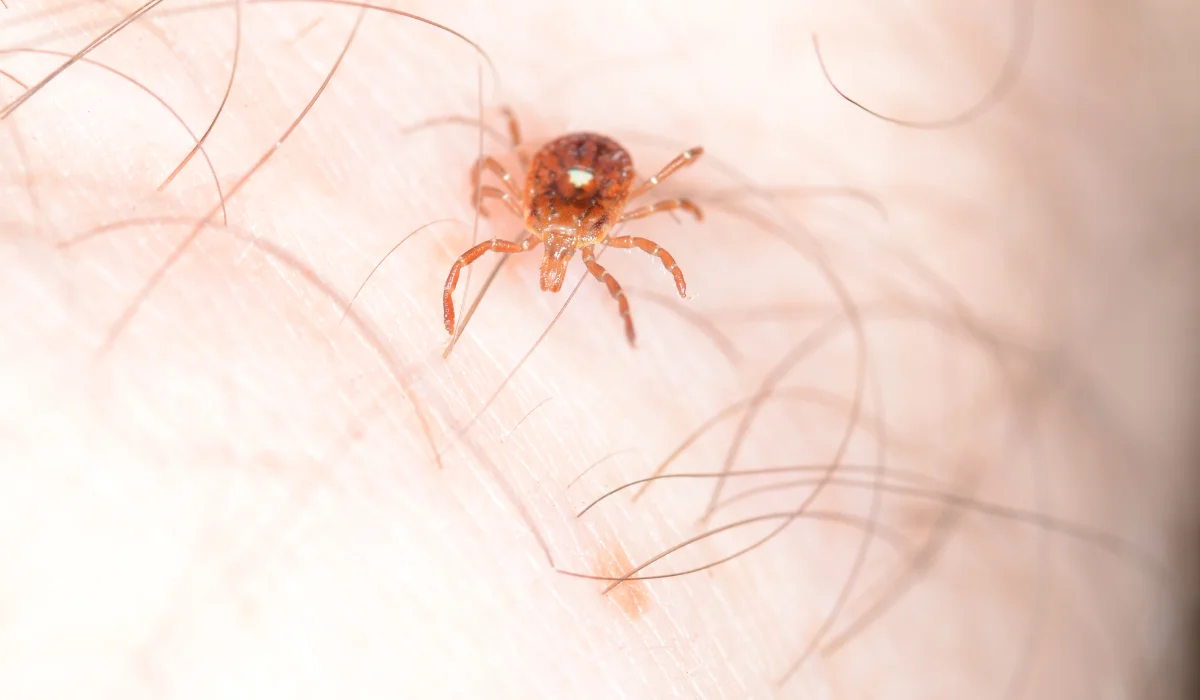Do Ticks Survive the Winter in Florida? What You Need to Know
Do ticks die in the winter? It's a pressing question for those in Florida looking to protect themselves and their pets. In Florida, ticks are less likely to die in winter due to the state’s mild temperatures.
With the right knowledge, staying tick-free throughout the year is possible. Keep reading to find out how these pests adapt to Florida's climate.
Key Takeaways
- In Florida, ticks stay active all year, including winter, due to the warm climate supporting their survival and activity.
- Common winter tick activity signs include spotting black-legged, or Lone Star ticks on pets or clothing after being outdoors.
- High humidity, warm temperatures, and host availability enable ticks to remain active during Florida's winter.
- Preventing winter tick exposure involves maintaining the yard, using repellents, checking pets, and seeking professional pest control.
Do Ticks Stay Active During Winter in Florida?
In Florida, ticks remain active throughout the year, including winter, due to the region’s warm climate.
While colder temperatures in other states lead to decreased tick activity, Florida’s mild winter allows ticks to thrive. This poses a risk for tick bites and disease transmission, even during cooler months.
Signs of Winter Tick Activity
Common indicators of their presence in winter include ticks on pets or clothing after outdoor activities. Seeing larvae or nymphs on skin or pet fur is also worrisome. These immature stages are difficult to detect but can spread diseases.
Always perform thorough tick checks after spending time outdoors, paying attention to pets' necks and ears.
Factors That Influence Tick Survival in Florida Winters
Humidity and Temperature
Humidity and temperature are major factors that affect tick survival in Florida winters. Ticks thrive in high humidity levels because they help prevent desiccation.
While colder temperatures can slow down a tick's activity, the state rarely experiences freezing temperatures that would threaten their survival. Its warmer temperatures also allow ticks to remain active longer.
Shelter and Host Availability
Shelter is important in tick survival through the winter months. Ticks find refuge in leaf litter, wooded areas, and tall grass, where they stay protected from the elements. Female ticks, in particular, may seek out sheltered locations to lay eggs, ensuring the continuation of their lifecycle.
Host availability is another critical factor. Ticks need hosts like deer, small mammals, and even humans to feed and mature. The state’s diverse wildlife provides ample opportunities for ticks to find a meal.
Types of Ticks
The state houses common ticks with varying potential for spreading tick-borne diseases. Even in winter, these species of ticks remain active in Florida's mild climate:
Tick Species | Distinct Physical Features | Diseases They Spread |
Lone Star Tick
| Reddish-brown body with a white dot on the female's back | Tularemia, southern tick-associated rash illness (STARI) |
American Dog Tick
| Brown body with ornate white markings on the back | Rocky Mountain spotted fever, tularemia |
Blacklegged Tick (Deer Tick)
| Black legs and dark brown body | Lyme disease, anaplasmosis, babesiosis |
Brown Dog Tick | Reddish-brown body, smaller size compared to other ticks | Ehrlichiosis, canine babesiosis |
Gulf Coast Tick | Brown body with distinctive, silvery markings on the back | Rickettsia parkeri rickettsiosis |
How to Prevent Ticks in Florida’s Winter Season
Tick prevention during Florida's winter can be straightforward. As homeowners, here’s what you can do to reduce tick exposure during the winter season:
- Regularly cut the grass and clear tall weeds. This removes places where ticks lurk and reduces their population.
- Apply insect repellents containing 20-30% DEET on the skin and clothing. Always follow the recommendations provided by the Centers for Disease Control and Prevention (CDC) for safe use.
- Treat clothing and gear with permethrin. This insecticide adapts well to outdoor conditions, offering protection from ticks.
- After being outdoors, examine pets for ticks. Use a fine comb or fingers to feel your pet’s fur, paying attention to the neck and ears.
- Place a 3-foot wood chips or gravel barrier between lawns and wooded areas. This discourages tick movement by creating a dry zone they avoid.
- Choose long sleeves and pants when venturing into tall grass or wooded areas. Light-colored clothing makes tick spotting easier.
- Use tweezers to grasp a tick close to the skin if a tick is found. Pull upward in a steady motion to ensure the removal of the mouthparts.
Professional Tick Control Solutions in Florida
If you notice tick activity near high-traffic areas or after warm-weather activities, consider reaching out for professional help. This is the best time to prevent an increase in tick populations. Acting fast during mild winters can help keep your home and yard safe and tick-free all year round.
Hiring professional pest control companies (like us, here at Native Pest Management) helps tackle tick problems efficiently. Our team can offer tailored, long-term solutions that suit your environment and the tick species prevalent in your area.


.2411142102184.webp)
.2411142102328.webp)